Every morning, as I put in my contact lenses, I’m reminded of Nabatieh. It was a dark night in March of 2020, we had driven through the south of Lebanon all day and ended our night with drinks and shisha in a local bar.
I was staying with a friend and his family in their building on the outskirts of the city. I was given his sister’s room – she was studying overseas at the time. We had just finished our tea and were preparing for bed. That’s when my contact lens sprung from my eye while I was trying to remove it, jumping onto the kitchen floor and getting lost amongst the linoleum.
We sat on hands and knees shining flashlights onto the floor, my friend explaining the situation to his mom in Arabic, me considering whether I could go the rest of the trip with just one contact lens. I found the lens, dusty and a little battered, sitting against the kitchen cabinet. I cleaned it off and we had a good laugh about it.
The next morning, we had fatteh for breakfast at a sunny city terrace, wandered through the souq and visited the Beaufort Castle in nearby Arnoun. From the stony hills covered in daisies, you could just about see across the southern border, where the occupation forces laid in wait. We climbed the castle’s cobblestones walls and afterwards, had a juice box sold by a vendor in the parking lot.
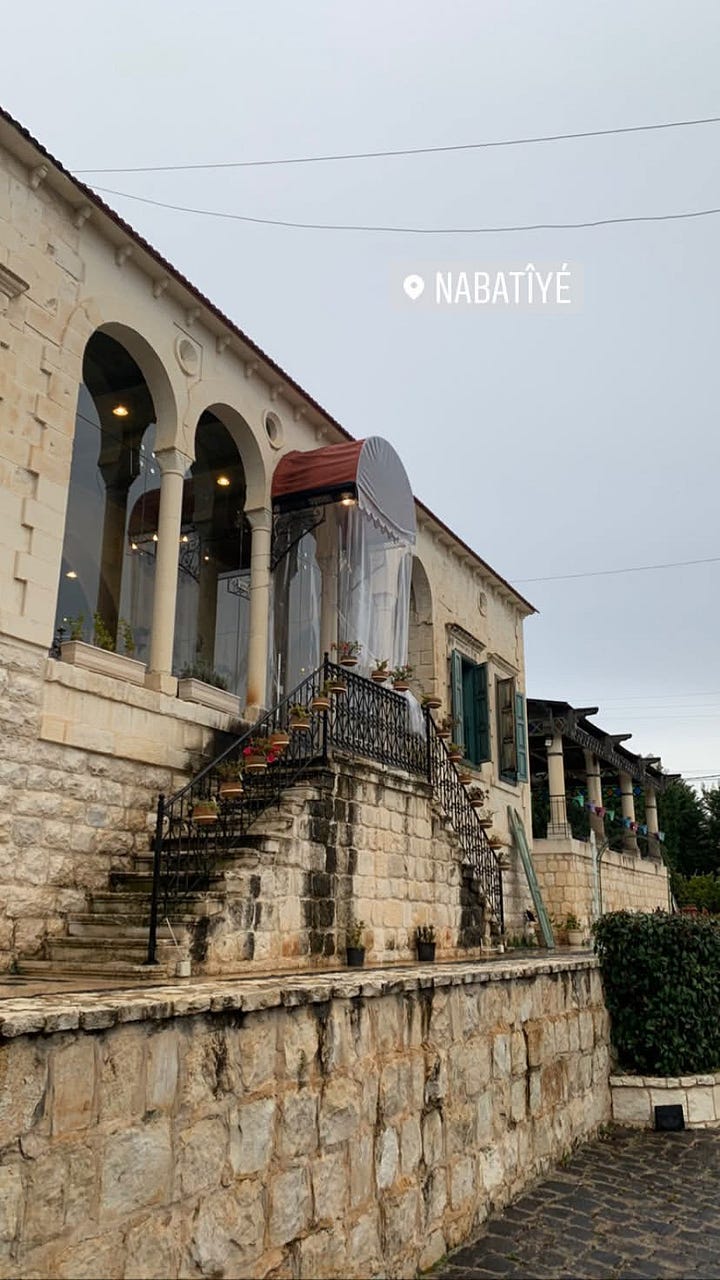
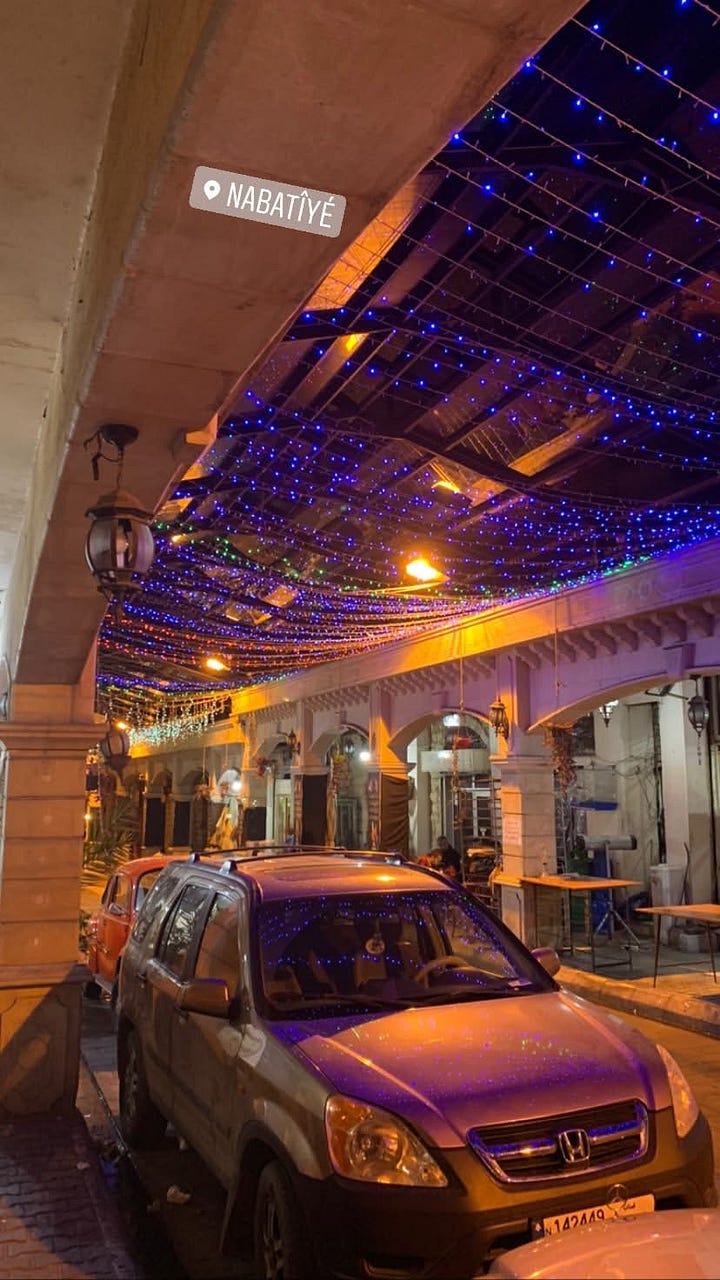
This morning, my contact lens was itching as if it were speckled in dust, burning with debris from Nabatieh. I cleaned it in my hand, swirling contact lens fluid in my palm and gently pressing on the lens, as my optometrist taught me. It was the same motion I performed in that Nabatieh kitchen, four years ago. The souq I visited then has now been destroyed by Israeli shelling. Even Nabatieh’s mayor was killed, as the city’s municipal building was bombed to bits in a poorly justified strike supposedly targeting Hezbollah infrastructure.
It’s been over a year since October 7th. The war drags on as Israeli forces ethnically cleanse Palestine and indiscriminately rain down destruction on Lebanon. Israeli leadership seems beholden only to the judgment of the Americans, who are in stasis as they tumble towards their November 5 election, with Harris and the Democrats barely lifting a finger against the Israelis, fearful of losing pro-zionist voter blocs that could cost them the White House. In other words, as banal as it is, the dysfunction of the U.S. “democracy,” if we can still describe it as such, has the Levant in a choke-hold.1
I recognize the symbolic power of gestures such as Meloni’s visit to Beirut,2 calls from Spain and Ireland to end the European Union's association agreement with Israel, and Macron’s call for an end to exporting arms to Israel. We could see these as steps in the right direction and further evidence that Israel is isolating itself on the world stage, while evidence of war crimes and genocide continue adding up. At the same time, these are but meager responses in view of an estimated 44,000 people murdered in Palestine alone.
Beyond the figures of death, it’s also important to pay attention to the psychological toll of this war. Scores of people are being traumatized forever. They will lay awake with nightmares of drones and evacuation warnings for years to come. Children will grow up emotionally stunted and constantly anxious. Yes, people will survive, but no, they will not come out unscathed.
Where are they subsequently supposed to direct their anger? Will there be any justice served, any material reparations granted, any repercussions to Israeli soldiers and politicians committing war crimes? Will there be any guarantee of safety, equity and peace, of the bare necessities of Palestinian sovereignty and a respect for Lebanese territorial integrity? Will Israel even attempt to meet any of the base conditions that would be necessary to ensure a lasting ceasefire?
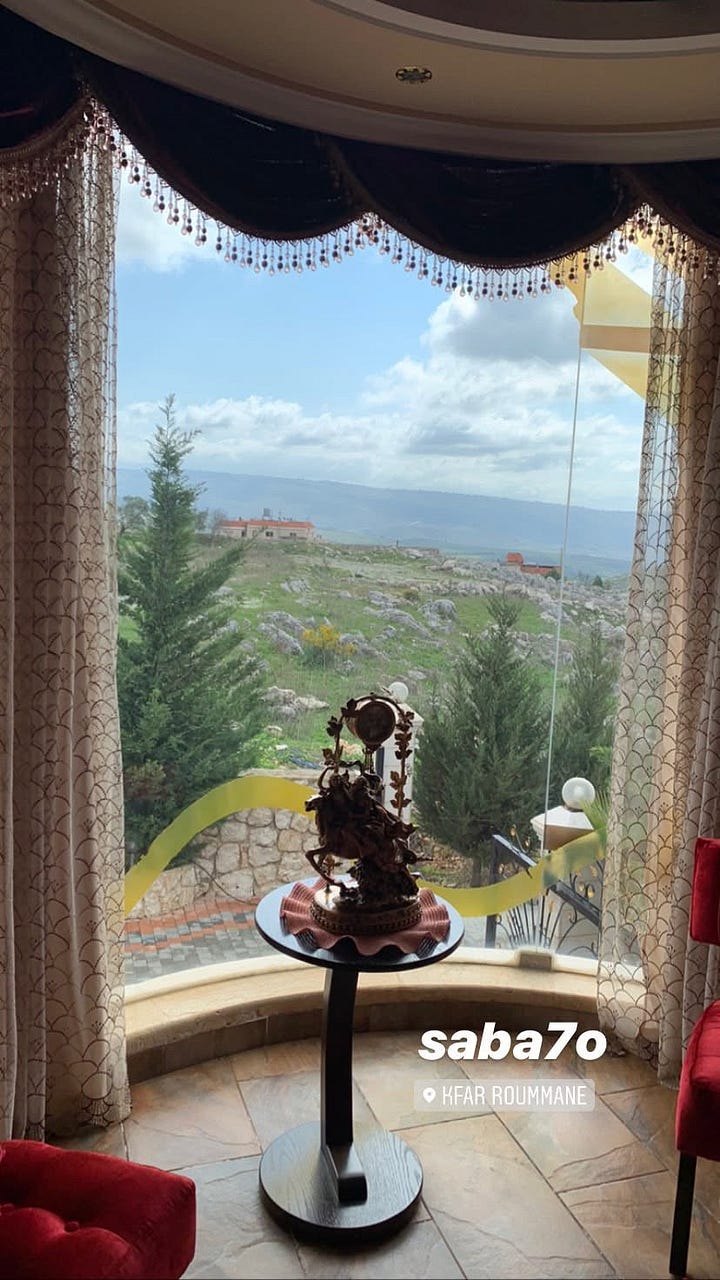
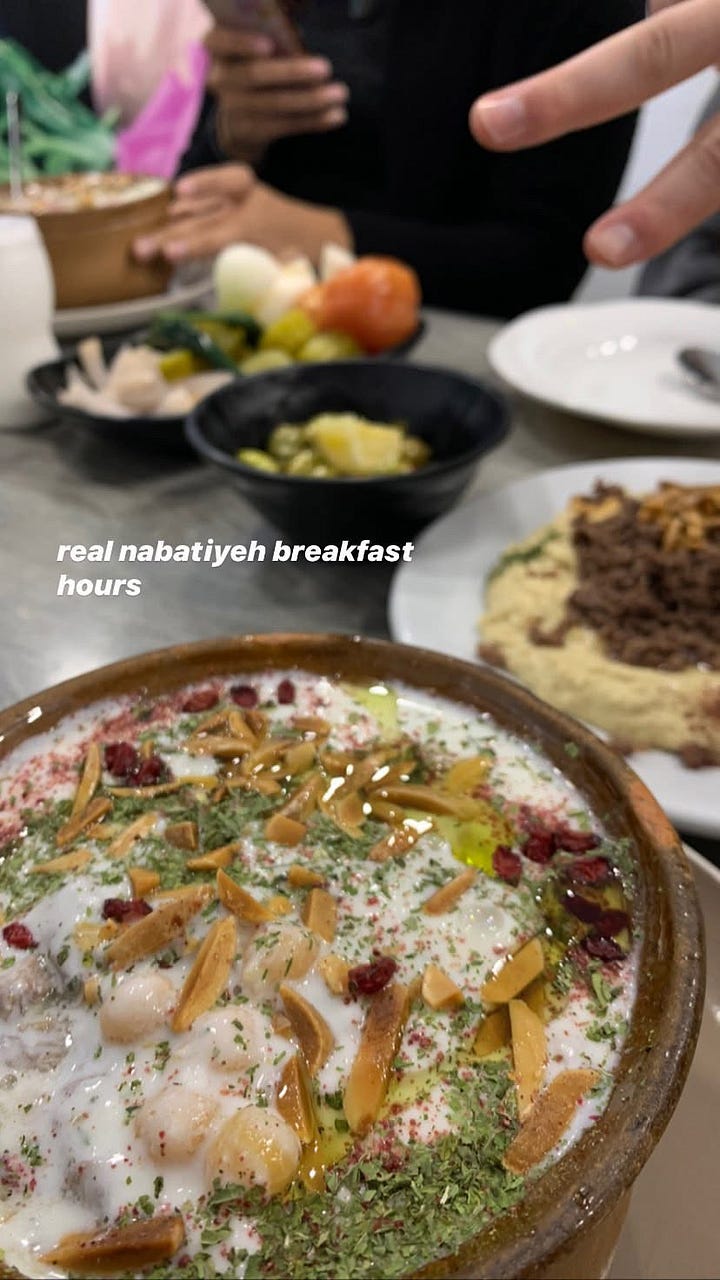
A major critique of the Israelis, even by their staunchest allies, is that they seem to have absolutely no end plan for either Gaza, the West Bank or Lebanon, beyond vengefully killing people (or as Netanyahu so eloquently put it, “children of darkness”) and completely destroying both Hamas and Hezbollah, which even its own military seems to think is an absurd notion: it’s very hard to kill an idea, after all.
This weekend, I spoke with dr. Sami Khatib after his talk in the Beursschouwburg, where he told me that Israel has effectively created its own opposition in Hamas by aggressively discrediting and destroying the secular P.L.O. (Palestinian Liberation Organisation) in efforts to frustrate the formation of a Palestinian state before and especially after the 1993 Oslo Accords.
Why did Israel move away from the Accords, a two-state solution deal which required so many concessions from Palestinians that philosopher Edward Said even called them a “Palestinian Versailles”, a terms of surrender “squandering the gains of the intifada?” Why did a far-right Israeli assassinate Yitzhak Rabin, the Israeli prime minister responsible for signing the accords? Why did Israel subsequently elect Benjamin Netanyahu in 1996, who then spent three years undermining the Accords, such as by expanding settlements on occupied Palestinian territory?
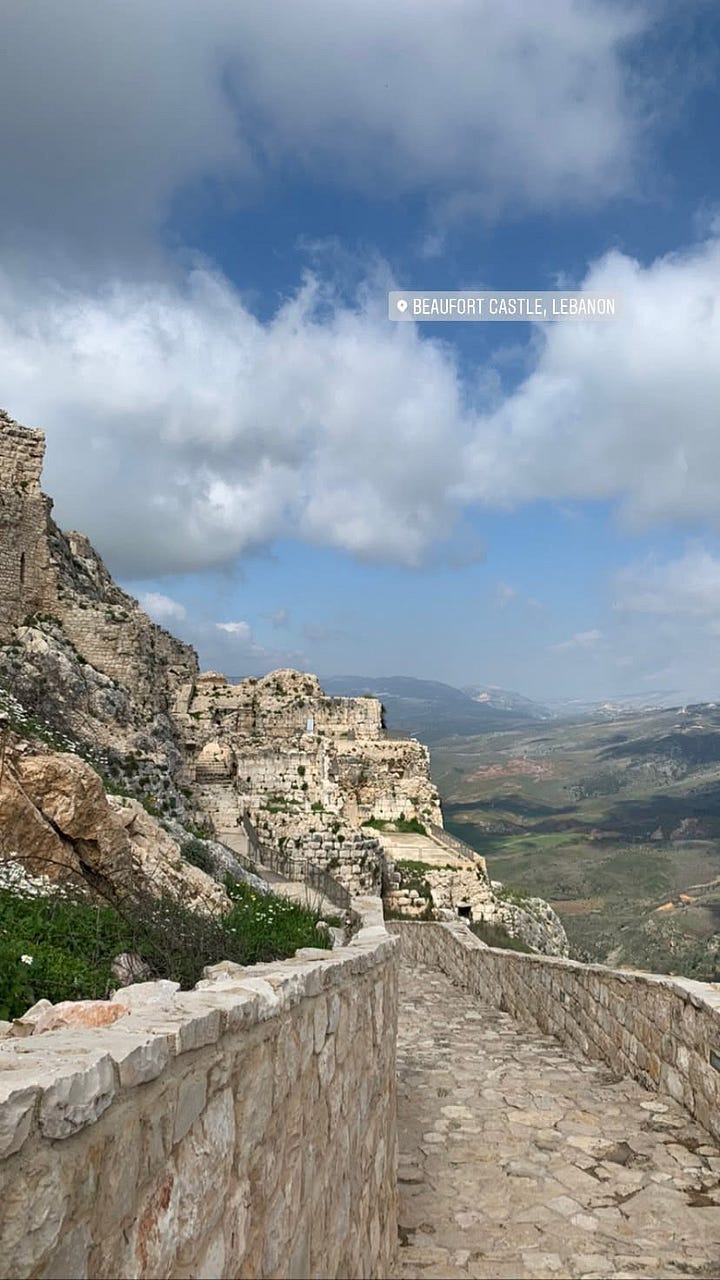
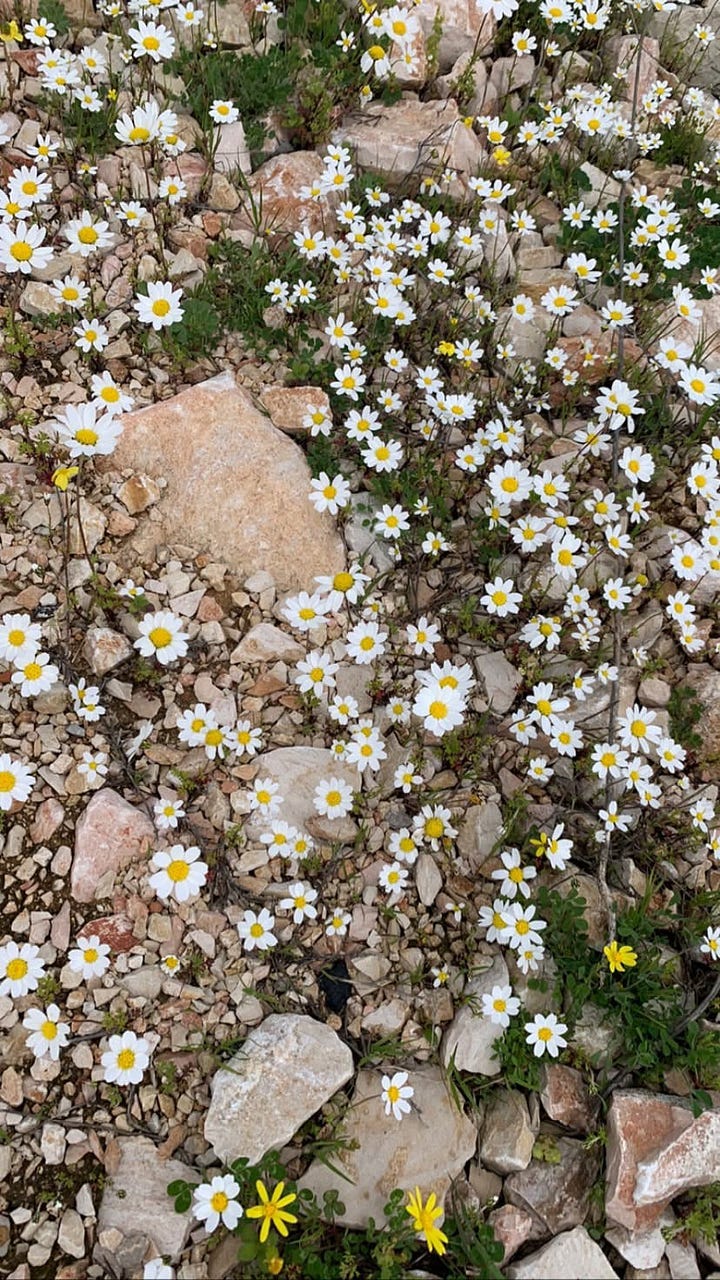
I believe that the answer is fear. We can explain this kind of process by studying the concept of a national “anxiety of incompleteness”, to borrow a term from Arjun Appadurai. In his book, “Fear of Small Numbers: An Essay on the Geography of Anger” (2006), Appadurai argues that the idea of a modern nation is dependent on the illusion of fixed and charged identities, and that fundamentalist violence is “a mode of producing certainty”, attached to fears about inequality and loss of national sovereignty, security and livelihood.
If we follow Appadurai’s reasoning, “uncertainties” remind a nation’s dominant group that its nation is “incomplete”; these induce anxiety about loss, which then translate to violence. Viewed through that lens, I would argue that Israel is a uniquely uncertain nation, because it has unstable borders due to its continued attempts at territorial expansion, because it has a sizable non-Jewish minority within its borders, because its own colonial violence has given rise to armed resistance groups that attack its citizens, and because it is surrounded by countries3 that opposed and resisted its creation numerous times, the first time in the 1947–48 Arab War that ended in the Palestinian Nakba.
Ergo, Israel is an anxious entity, sustaining itself on fear, constantly in the process of trying to produce certainty. This is why even something as tepid as the Oslo Accords was torpedoed into irrelevance. This is why Netanyahu refuses to articulate an end goal for Gaza or Lebanon.
Yet Israel’s uncertainty will not be solved through bombing armed resistance groups out of existence, nor through refusing every attempt at negotiating Palestinian sovereignty. It will continue haunting Israel indefinitely, because it represents an anxiety that simply cannot be resolved – Palestinians and others who resist Israeli hegemony exist and will continue existing, after all, whether for religious or ideological reasons – and thus Israel’s wars will continue without an end in sight, so long as the United States keeps sending its massive cheques.
Even if every Sinwar, Nasrallah and Haniyeh were killed, even if the genocide of Gaza were completed, the wars would continue on the micro-level of discrimination, racism and apartheid, as every Palestinian citizen of Israel can attest to.
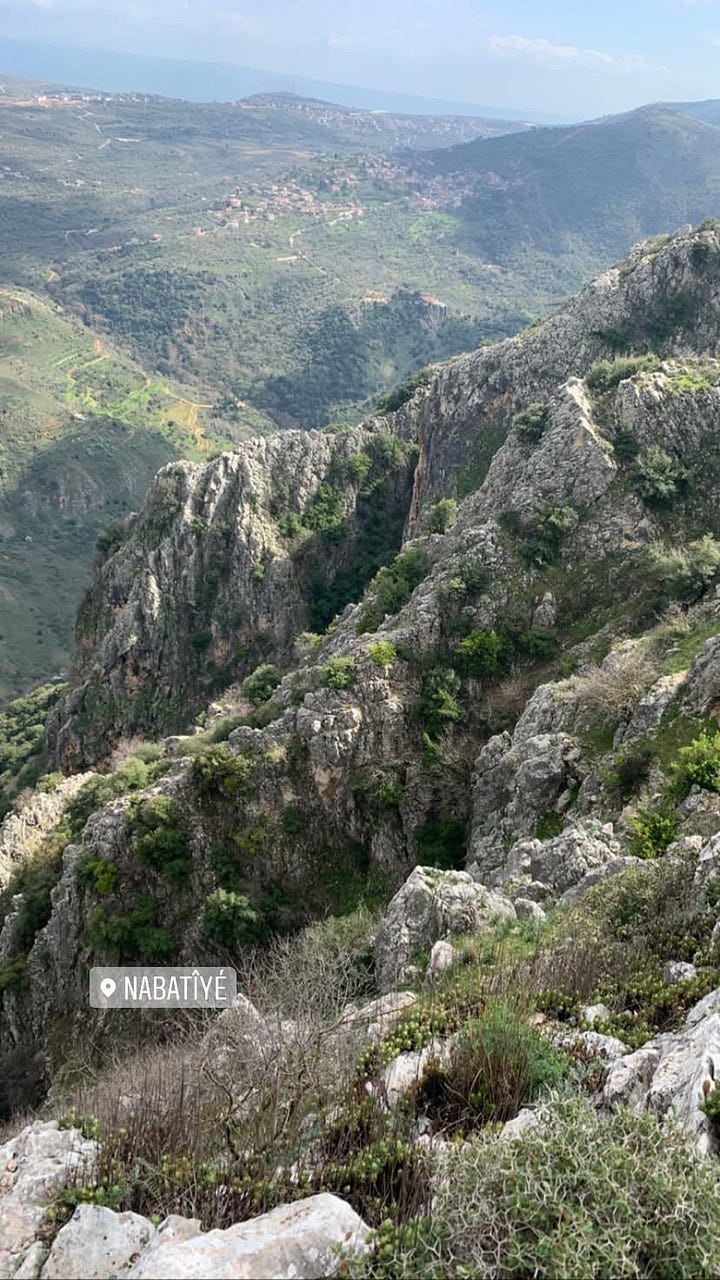
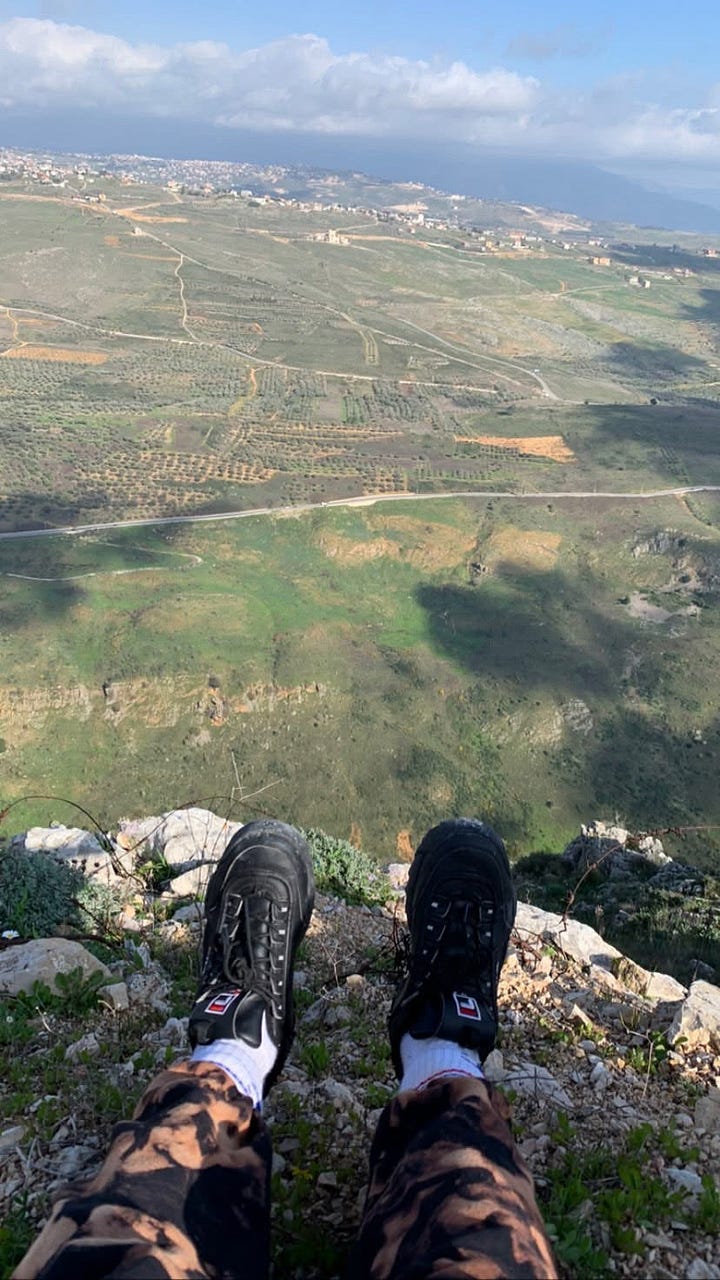
With no-one but the Americans capable of influencing Israel, we must await November 5th with baited breath. The fundamental structure of the U.S. electoral system forces us, as non-Americans, to engage in the false narrative presenting only two choices for the U.S. presidency, wherein the Republican one will invariably be so awful that it effectively renders any criticism of the Democratic candidate moot: “You don’t want Trump to win, do you?”
Indeed, in this case, Harris’ slightly more critical tone towards Israel would appear preferable to Trump, whose friendship with Netanyahu is well documented. I have heard the sentiment that a Trump victory would accelerate the decay of the U.S. empire and erode American influence in the Levant, but I fear that such a long-term effect would come at a terrible short-term cost – in the form of an endorsement of Israeli territorial expansion, as well as even more enthusiastic material and military support.4
Even if a Harris victory ends up pushing Netanyahu into wrapping up his maniacal forever war,5 it is in-arguably depressing that the U.S. elections always seem to come down to the “lesser of two evils”, especially when it comes to Palestine (and now, Lebanon). Perhaps there is hope that, in coming years, the Arab-American voting bloc will grow so large and influential that Democratic leadership must start seriously catering to their views on Palestine. But clearly, that day is not today.
No, today we must clean off our dusty contact lenses and try to see, really see, what is going on in the world and what we can do to help. The U.S. election, as influential as it will be on what is to come, is beyond our power. In my latest blog post I argued that, in spite of a rising feeling of helplessness, we can at least turn to our communities and try to form bonds of solidarity, so that we can come closer to a micro-level resistance to the shrill drumbeat of individualism, consumerism and exploitation which ultimately gives rise to all this violence.
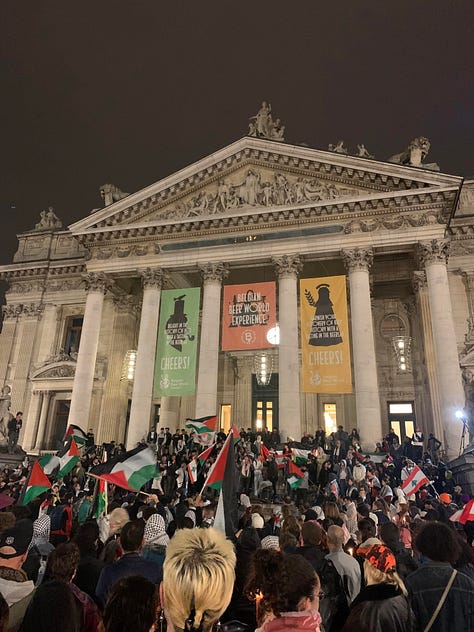
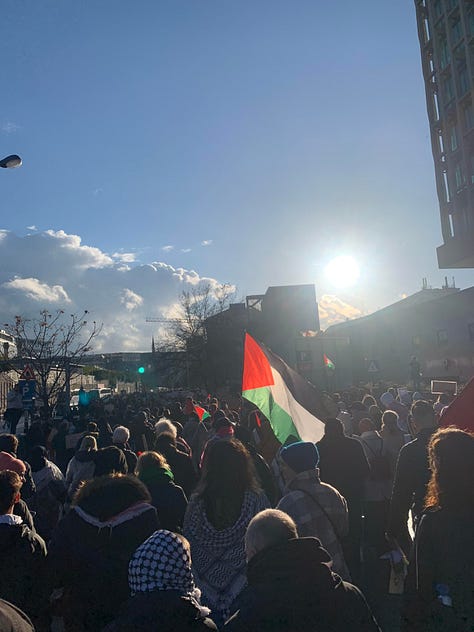
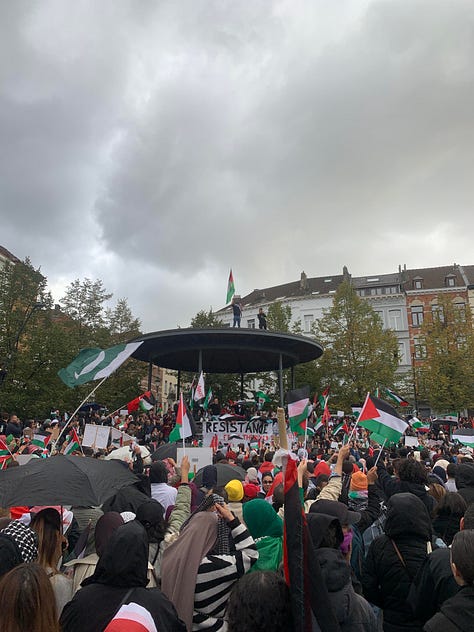
We whisper “allah yer7amhom” (God have mercy on them) for our dead and hug our friends as they witness their cities being bombed on Instagram Stories. As tiny as our efforts are on the global scale, they still represent a belief that this can be different, should be different, will be different. Every box of food and supplies packaged and brought to Lebanon, every cent donated to a GoFundMe of a Palestinian family trying to leave Gaza, every candle lit at a protest and every cup of fresh mint tea handed out by Caddy for Palestine represents these sprinklings of hope that we must cling to, no matter what, for the sake of the olive and cedar trees.
I hope to visit Nabatieh again, and soon.
Please consider making a donation to Beit el Baraka, which is feeding Lebanese families in need during this time of suffering: https://beitelbaraka.net/welcome/
At this point, I suppose the term “oligarchy” is better suited to a country of 345 million people that allows only two choices, both of which are hopelessly entangled with lobbyists and interest groups.
It’s nice that she criticizes Israel for attacking Unifil, but she’s still a conservative zealot, and we should be wary of her normalization as Europe shifts further and further to the right.
Egypt, Jordan, Lebanon and Syria.
That is to say nothing of the impact Trump’s re-election would have internationally, by way of empowering the rise of more autocrats and demagogues to join the swelling ranks of Milei, Meloni, Orbán, Putin, Erdoğan, Wilders, Prabowo, Modi, Kais Saied, etcetera.



